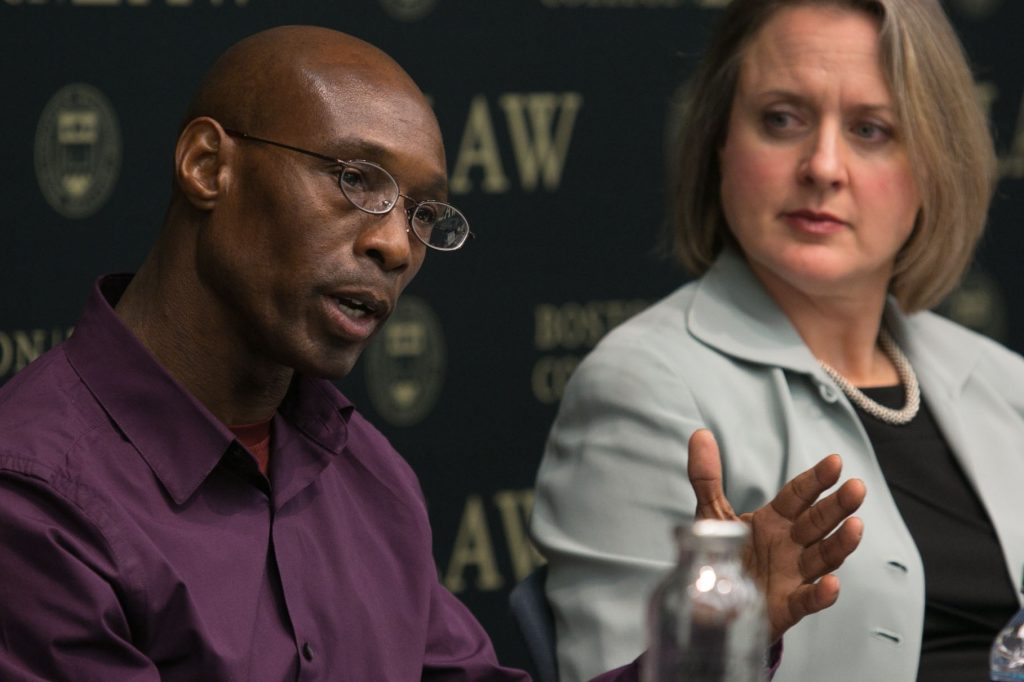Three months to the day after his exoneration for a 1981 murder he didn’t commit, Fred Clay sat on a panel at BC Law School beside lawyers, advocates, and a legislator, all of them working to ensure that wrongful convictions like his become things of the past.
“We can never compensate you for the 38 years you spent in prison and for the life you didn’t get to live,” said panelist Massachusetts State Senator Pat Jehlen, a proponent of current bills to reform forensic science and improve compensation and services to exonerees. “But we can do better to ease your path forward.”
“I am grateful, honored, and blessed,” Clay said of having at last found supporters like the panelists involved in his case. “But it should have happened many years ago.” It was his experience in the criminal justice system that “you’re definitely guilty until proven innocent.”
Among the topics addressed at the November 8 event, which was co-sponsored by the Rappaport Center for Law and Public Policy and the Boston College Innocence Program, was how collaboration among all parties can make a big difference in expeditious and appropriate outcomes for the accused.
That was true in Clay’s case, according to Donna Jalbert Patalano ’01, former chief of professional integrity and ethics and training at the Suffolk County District Attorney’s office. “So many pieces came together that wouldn’t have happened without the collaboration,” she said. Nevertheless, there is so much left to do, so many cases to examine, so many requests by prisoners for help, she added. “The work never ends. It is relentless.”
The panel included Lisa M. Kavanaugh, director of the Committee for Public Counsel Services (CPCS) Innocence Program, who played a central role in Clay’s case. Their discussion was moderated by Professor Charlotte Whitmore of the BC Innocence Program, whose students helped to free Clay and are currently advocating for the reform legislation in the state legislature. Professor Sharon Beckman directs BC’s program.
Related coverage:
Innocence Program Helps Free Man From Prison
Innocence Program Joins Policy Push to Help Exonerees
Photograph: Fred Clay and Lisa M. Kavanaugh


